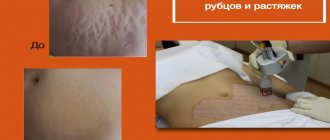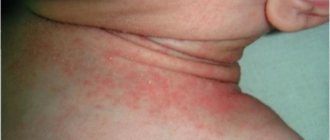Many people are familiar with the unpleasant manifestations of herpes. This is not surprising, because according to WHO, more than 78% of the world's population is infected with the most common types of the virus: 67% are infected with herpes simplex virus type 1, and another 11% with herpes simplex virus type 2.
What is herpes, what causes it, why is it dangerous, and how should it be treated? Having knowledge about the disease, you can minimize the risk of its exacerbation, and most importantly, avoid complications.
Herpes on the lips
Herpes is a virus
The source of the disease is the so-called herpes viruses. These are DNA-containing microorganisms that are causative agents of various types of infections.
The initial entry of the virus into the body usually occurs through the mucous membranes (although entry through damaged skin is not excluded). Having overcome tissue barriers, harmful microorganisms enter the blood and lymph and spread throughout the body. They are able to penetrate the cells of internal organs and nerve endings. The peculiarity and danger of herpes is that it is genetically introduced into the nucleus of nerve cells, after which it remains in the body forever.
Many people do not even realize that they are carriers of the virus, since the pathology in most cases is asymptomatic, not showing itself in any way (this is called a latent state).
The human immune system is capable of suppressing the development of the virus, but if it is weakened, the infection “awakens.”
Herpes Virus
Treatment of herpetic stomatitis
How to treat herpes stomatitis? Unfortunately, the herpes virus, once entered into a person’s blood, remains in a “dormant” state for the rest of his life. But treatment of viral stomatitis is possible provided that you do not delay visiting the dentist when the first signs of the disease are detected. During the period of therapy, in order to avoid infecting loved ones, you should eat and drink from separate containers and avoid kissing. The patient is recommended a diet that excludes spicy, smoked, sour and salty foods, which can irritate the damaged oral mucosa, and an increased drinking regimen (up to 2.5 liters per day), aimed at combating the manifestations of general intoxication of the body.
Symptoms of different types of herpes
A “sleeping” virus may not bother its host for years. But if for some reason the virus enters the active phase, it is easy to recognize - by its characteristic rashes. The “classic” visual sign of herpes is itchy, watery blisters that can appear in different places - on the face and on the body.
There are several types of herpes virus - they differ in their manifestations. Most often in medical practice, diagnoses such as HSV-1 and HSV-2 are encountered - this is the abbreviated name for herpes simplex viruses types 1 and 2.
Cold sores and chicken pox are related diseases caused by herpes. Several types of the virus can “coexist” in one person.
| Many people call this pathology a “cold on the lips,” although the “classic” cold and herpes are different things. We are talking about the herpes simplex virus type 1, which usually “attacks” the lips and nasolabial triangle. Externally, the disease manifests itself in the form of rashes. They represent one or a whole cluster of bubbles with liquid contents. When asked whether there can be a fever with herpes, the answer is positive: many patients complain of fever, headaches and general weakness. Among doctors, there is another name for pathology: when you see a diagnosis such as oral or labial herpes in your medical record, know that we are talking about the herpes simplex virus type 1. Herpes on the lip is usually very itchy |
| The second type of herpes simplex is accompanied by the development of genital (genital) infections. The disease in most cases is asymptomatic or, as with labial herpes, is accompanied by the appearance of blisters (ulcers), but only in the area of the external genitalia. Other signs of HSV-2 are fever, body aches, fatigue, and swollen lymph nodes in the genitals. Most often, the disease is transmitted sexually, but infection can also occur from a person with labial herpes. |
| Virus type 3, also known as the herpes zoster virus, is the culprit of chickenpox. To become infected, it is enough to enter into a conversation with a sick person (transmission occurs through airborne droplets). Having had chickenpox, a person remains a carrier of this virus for the rest of his life. In case of relapse, there is a risk of developing herpes zoster. This disease is characterized by the appearance of itchy rashes throughout the body, as well as fever. Chicken pox |
| Herpes type 4 causes such a serious infectious disease as mononucleosis. This disease is accompanied by enlarged lymph nodes and fever; the patient complains of a sore throat and general weakness. The liver and spleen are also affected. |
| Herpes type 5 provokes the development of cytomegalovirus. The disease manifests itself differently, depending on which organ is affected. A runny nose, disturbances in the gastrointestinal tract, inflammatory diseases of the genital organs - all this can be a sign of pathology. |
| In addition to those described above, there are also types 6, 7 and 8 herpes. Scientists are now studying these viruses. |
Classification of herpes viruses
Researchers have identified 8 strains of herpesvirus that can infect humans:
- First. Causes inflammation of the lips and mouth (labial herpes). In rare cases, it can cause genital rashes.
- Second. Affects the genitals and groin area. Causes genital or vaginal herpes. Less commonly, it is the causative agent of oral herpes.
- Third. Causes chickenpox and shingles.
- Fourth. Known as Epstein-Barr virus. Causes mononucleosis, lymphomas and carcinomas.
- Fifth. Cytomegalovirus. Causes mononucleosis, hepatitis, herpetic retinitis.
- Sixth and seventh. Roseoloviruses. They cause roseola, exanthema. May be one of the causes of chronic fatigue.
- Eighth. Causes lymphoma, Kaposi's sarcoma, Castleman's disease.
The causative agent of herpes simplex is herpesvirus type I or II. There is a misconception that the disease cannot be cured. In fact, herpes is curable. Although modern medicine cannot completely remove the virus from the body, it is possible to suppress its vital activity so much that it stops causing inconvenience.
Herpes - what causes it?
The risk of contracting an infection arises from a very early age, because there are a huge number of adults around a small child, most of whom are carriers of herpes. Infection can also occur in the womb of an infected mother.
So, what can cause herpes on the lips? Children (and adults) often become infected through kissing, as well as through sharing utensils. If you are near a person with herpes who coughs or sneezes, there is a high risk of infection through airborne droplets. In addition, the virus is transmitted sexually (primarily this concerns HSV-2). People who receive blood transfusions are also at risk.
Fortunately, most people infected with the herpes virus (about 80%) have an inactive form of the infection. However, there are factors that provoke a relapse - then the “sleeping” virus begins to actively multiply. So, some people regularly suffer from sores on their lips - the hated “cold” can appear 5-10 times a year. The cause of recurrence of the disease may be:
- diseases – endocrine, viral and bacterial;
- hypothermia;
- stress;
- exhaustion of the body;
- overwork;
- injuries;
- metabolic disorders.
In women, another provoking factor is menstruation.
Drug therapy
Rinse
To stop the spread of infection throughout the oral cavity, as well as to prevent the occurrence of sore throat, anti-inflammatory drugs such as Stomatidine and Miramistin are prescribed. The greatest effect is achieved by repeating the rinsing procedure every 3 hours, strictly adhering to the instructions for medicinal solutions.
Antiviral drugs
To suppress the reproduction of the herpes virus, the patient is advised to take “Immudon” and “Acyclovir” orally according to the scheme, and for external use - “Viferon” ointment or “Silicea” gel.
Vitamin therapy
Tablet vitamin complexes such as “Complivit” help improve immunity.
Attention!
Before use, consultation with a specialist is recommended!
Is there any prevention against herpes?
To resist the virus, you need a strong immune system. Therefore, those who suffer from frequent colds on the lips need to pay attention to their immune system. Take care of a healthy, balanced diet, do not forget about sports, maintain a normal daily schedule (first of all, ensure that you get adequate sleep) and try to get rid of bad habits (smoking, etc.).
It is important to practice basic hygiene, including regular hand washing. It is recommended to use personal hygiene products. During infectious epidemics, it is advisable to avoid staying in crowded places if possible.
To reduce the risk of genital herpes, you should use condoms.
How to find out if there is a virus?
Already during the initial examination of the patient, the doctor can determine the presence of herpes (often people who have visual manifestations of the disease seek medical help). But in order to confirm the diagnosis and determine the degree of development of the infection, laboratory tests are prescribed.
Tests are important when planning pregnancy, since the virus is dangerous to the fetus. Tests are also required for patients preparing for transplantation.
There are several diagnostic methods - which one will be optimal in a particular case, the doctor will tell you. The presence of the herpes virus and its type can be determined by blood tests (enzyme immunoassay, PCR analysis, immunofluorescence reaction) and scrapings (culture method, immunofluorescence reaction). The most accurate, but also the most time-consuming and expensive method is the cultural method, which involves “growing” a virus obtained from a patient’s biomaterial in laboratory conditions.
Diagnosis of herpes
Diagnosis of the disease
The presence of herpesvirus in the body can be detected using various methods. We list the effective methods that are used in our modern laboratory:
- Polymerase chain reaction. Allows you to determine the DNA of the virus in the taken material.
- Linked immunosorbent assay. Detects the presence of antibodies that are formed in the body when infected with a virus. The stage of the disease can be determined by the concentration of antibodies.
- Immunofluorescence reaction. The biomaterial is treated with an active substance that makes the antigens glow.
- Cultural technique. Sowing biomaterial on a nutrient medium. Studying the development of the virus under a microscope.
- Serological analysis. Detects class G and M antibodies and their avidity. Often used to diagnose genital herpes. The biomaterial is blood taken from a vein.
With any diagnosis there is a chance of getting a false positive result. An accurate diagnosis is made after several studies.
How does herpes simplex develop?
- It all starts with itching and/or tingling in the place where herpes develops - as we have already found out, most often this is the area of the nasolabial triangle. The skin turns red and begins to itch.
- Next, the stage of inflammation begins. Swelling appears in the affected area and a small, painful pimple appears - a blister containing clear liquid. Over time, this liquid becomes cloudy. A small pimple(s) gradually increases in size.
- The blisters burst 3–5 days after the onset of the disease. A liquid flows from them, containing an uncountable number of viral particles. During this period, contact with a sick person should be stopped, since the risk of infection is very high. At the site of the rash, ulcers with a purulent crust (scabs) form. When the scab is damaged, bleeding begins.
A natural question for every patient is, how many days does it take for herpes to go away? This usually takes about 10 days. If symptoms do not disappear during this time, you should see a doctor, since herpes can signal the presence of other diseases.
Herpes ointment
Bacterial or viral?
In addition to viral origin, the disease can be caused by bacteria: streptococci and staphylococci are normally present in the microflora of the oral cavity and begin to multiply uncontrollably during the inflammatory process. The latter may be caused by caries or periodontitis (read more about the disease in the article).
How to distinguish viral stomatitis from bacterial one? It is extremely difficult to do this at home, so it is better to consult a doctor. The main differential feature is the localization of the rash. With viral herpetic stomatitis, vesicles with transparent contents first appear on the tongue (its tip, along the side surfaces and under it), and then can even spread to the pharynx and tonsils.
For bacterial stomatitis, the location of the rash on the gums and those areas where the skin borders the mucous membrane (for example, on the red border of the lips) is more common. Also, with a disease caused by streptococci, “jams” are often observed - pustules on the corners of the mouth, which quickly begin to bleed, become covered with a crust, crack and cause constant discomfort while eating and talking.
Types of diagnostics
An experienced doctor can identify herpetic stomatitis in adults during an initial examination, relying on only two methods.
- Clinical picture.
Based on the totality of the patient’s specific complaints and distinctive external signs, the dentist will not only assess the severity of the disease, but also differentiate it from ordinary stomatitis, candidiasis, etc. - Immunofluorescence.
Express microscopy method, the most accurate for diagnosing acute herpetic stomatitis.
Possible complications
The herpes virus should not be perceived as an unpleasant but harmless “sore.” This is a rather insidious disease that poses a particular danger to pregnant women, infants and people with weakened immune systems (patients with cancer, people with HIV and AIDS).
The virus is not limited to superficial tissues - it easily penetrates into internal ones. The main targets of herpes are the mucous membranes, skin, eyes (conjunctivitis can also be a consequence of herpes), as well as the central nervous system and brain. Lymph nodes and internal organs can be affected by the virus. Due to the fault of the pathogenic microorganism, the functioning of the liver, lungs, intestines and kidneys can be disrupted.
The consequences of herpes can be stomatitis, infertility, miscarriage, congenital deformities in children, encephalitis, inflammation in the joints, prostatitis, benign and malignant tumors. Scientists, based on research, associate the development of multiple sclerosis and Alzheimer's disease with herpes.
If a person’s immune system is weakened, other infections, both viral and bacterial, can “join” herpes, and this, in turn, puts an increased burden on the heart.
Experts' opinion
Research conducted at the Kazan State Academy has determined that the use of preparations from the Asepta line (gels, balms, toothpastes, rinses) increases the effectiveness of treatment of chronic catarrhal gingivitis and other inflammations, mild and moderate chronic periodontitis, hyperesthesia of hard dental tissues, which together significantly reduces the duration of treatment and increases the duration of remission in this category of patients.
Sources:
- The use of drugs from the Asepta line in the complex treatment of inflammatory periodontal diseases (N.V. Berezina E.N. Silantyeva S.M. Krivonos, Kazan State Medical Academy. Kazan.) N.V. BEREZINA, E.N. SILANTIEVA, S.M. KRIVONOS Kazan State Medical Academy
- https://cyberleninka.ru/article/n/sovremennye-lechebno-profilakticheskie-sredstva-dlya-individualnoy-gigieny-polosti-rta Silantieva E.N., Berezina N.V., Krivonos S.M. Complex treatment of chronic recurrent aphthous stomatitis using drugs from the Asept line, Practical Medicine journal
- Clinical and laboratory assessment of the influence of domestic therapeutic and prophylactic toothpaste based on plant extracts on the condition of the oral cavity in patients with simple marginal gingivitis. Doctor of Medical Sciences, Professor Elovikova T.M.1, Candidate of Chemical Sciences, Associate Professor Ermishina E.Yu. 2, Doctor of Technical Sciences Associate Professor Belokonova N.A. 2 Department of Therapeutic Dentistry USMU1, Department of General Chemistry USMU2
- Clinical studies of antisensitive toothpaste “Asepta Sensitive” (A.A. Leontyev, O.V. Kalinina, S.B. Ulitovsky) A.A. LEONTIEV, dentist O.V. KALININA, dentist S.B. ULITOVSKY, Doctor of Medical Sciences, Prof. Department of Therapeutic Dentistry, St. Petersburg State Medical University named after. acad. I.P. Pavlova
- The role of anti-inflammatory rinse in the treatment of periodontal diseases (L.Yu. Orekhova, A.A. Leontyev, S.B. Ulitovsky) L.Yu. OREKHOVA, Doctor of Medical Sciences, Prof., Head of Department; A.A. LEONTIEV, dentist; S.B. ULITOVSKY, Doctor of Medical Sciences, Prof. Department of Therapeutic Dentistry of St. Petersburg State Medical University named after. acad. I. P. Pavlova
- Report on clinical trials of anti-inflammatory balm for gums "Asepta" adhesive, St. Petersburg State Medical University, 2007
Which doctor's help might be needed for herpes?
With the questions “what causes herpes to constantly appear on the lips” and “I’m tormented by herpes - what to do?” You can contact your therapist first. He will subsequently refer you to an infectious disease specialist or dermatologist (if we are talking about an oral virus). Patients with a genital infection should see a gynecologist (women) or a urologist (men). Since the pathology may be associated with diseases of the internal organs, you may need to consult a gastroenterologist, hepatologist or pulmonologist.
Treatment at home with folk remedies
On the Internet you can often come across the question: “How to treat herpetic stomatitis with folk remedies?” Let’s make a reservation right away: when treating this disease, you cannot rely solely on traditional medicine methods. Therapy must be comprehensive, and only a doctor can choose it correctly.
An effective folk remedy for rinsing the mouth is propolis tincture diluted with boiled water 1:3. In case of pronounced “jams” in the corners of the mouth and painful ulcers inside, applications with natural sea buckthorn oil have an analgesic and wound-healing effect.
How to treat herpes?
It is impossible to completely destroy a virus that has entered the body. But it is quite possible to suppress its activity so much that it does not bother you. In modern medicine, an integrated approach is used for this. The best results are obtained by combination therapy, which involves the use of antiviral drugs (they are available in the form of drugs for internal use and in the form of external agents), as well as drugs that strengthen the immune system. In some cases, the patient is additionally prescribed local analgesics and physiotherapeutic procedures.
Many people are interested in whether it is possible to burn herpes with alcohol? Alas, this method does not affect the virus, but only damages the mucous membranes, so it is better to use special ointments.
What remedies are usually prescribed for herpes on the lips? The table shows a list of the most common medications used to treat the virus.
| Name, dosage form | Description |
| Acyclovir (aka Zovirax). Available in the form of tablets, cream, eye ointments, injection solutions. | An inexpensive antiviral drug that stops the replication of the virus. Addressed to adults and children over 3 years old. Not recommended for use during pregnancy. Antiviral ointment |
| Valacyclovir (aka Valtrex) Available in the form of 500 mg tablets. | One of the best drugs for herpes. It differs from Acyclovir in the method of delivery of the active ingredient. Suppresses the activity of the virus and reduces symptoms. When taking the drug, the risk of infection through contact with other people is reduced. Treatment of herpes in 3 days |
| Famciclovir (aka Famvir) Available in the form of tablets 125, 250 and 500 mg. | Just like Acyclovir and Valtrex, it blocks the replication of the virus. Helps in the treatment of simple virus and the virus that causes chickenpox. Famciclovir is effective against viruses resistant to Acyclovir. Famciclovir |
| Panavir Available in the form of a solution for intravenous injection, as well as in the form of a gel and suppositories (suppositories). | Antiviral, anti-inflammatory and immunomodulatory drug of plant origin. Increases the body's resistance to infections and has an antipyretic effect. |
| Docosanol (aka Erazaban) Available in the form of a cream for external use. | Has an antiviral effect. Intended for use in adults and children over 12 years of age. Pregnant women are prescribed with caution. |
| Proteflazid Available in the form of drops. | Antiviral agent for systemic use. Intended for the treatment of herpes simplex in children and adults. Used in pediatric practice (including in children under 1 year). |
| Flavoside Available in the form of syrup. | Effective in the treatment of herpes simplex, as well as in the treatment and prevention of influenza. Used in pediatric practice (including in children under 1 year). |
The presented list of drugs is far from complete - the doctor, depending on the characteristics of a particular patient, may recommend other drugs. For example, in some cases antibiotics cannot be avoided (if there is a risk of contracting other infections).
Antiviral drugs
Their goal is to suppress the pathogen, shorten the duration of the exacerbation, and reduce the intensity of symptoms. The most popular products are Acyclovir and Zovirax in the form of tablets and creams. Using cream in the mouth is difficult, so tablets are optimal. They drink them in a course.
It is better to start treatment at the first signs of the disease. In some cases it can be stopped. Interferon nasal drops have also shown their effectiveness in the initial stages of herpes. At the very least, they prevent the spread of infection into the respiratory tract.
We have already found out that the main reason for the manifestation of herpes is weakened immunity. Conclusion: to avoid relapses, it is necessary to increase the body's defenses. To do this, you should contact an immunologist, who will refer you for diagnostics and prescribe individual treatment. Sometimes it includes immunomodulators - drugs that can increase immunity (Immunal, Imudon and others), folk remedies (for example, echinacea tincture), vitamin and mineral complexes. You can also take specialized complexes of vitamins and minerals, for example, ASEPTA® Parodontal to strengthen teeth and gums: its active components help not only reduce bleeding and inflammation in the oral cavity, but also maintain general immunity.
General recommendations on how to strengthen the body and increase its protection:
- avoid stress, improve sleep;
- include as many fresh vegetables, fruits, and herbs in your diet as possible;
- to drink a lot of water;
- exercise or swimming.
In case of exacerbation of herpes on the gums, it is recommended to adhere to a diet: remove spicy, fatty, too hot foods from the diet, exclude hot and alcoholic drinks. To avoid irritating the mucous membranes, avoid smoking.
The difficulty of using creams and ointments is not a reason to refuse local treatment for herpes. Rinsing and irrigating the oral mucosa will help relieve symptoms and prevent the spread of infection. Good products: Hexoral, chlorhexidine, hydrogen peroxide solution, furatsilin, as well as anesthetic sprays, rinsing solutions, gels with anesthetics (for example, Lidoxor gel, which relieves burning and irritation). Adhesive gum balm ASEPTA® is an effective combined antimicrobial agent that has a wide spectrum of action against gum disease pathogens, thanks to the combination of metronidazole + chlorhexidine, and guarantees long-term fixation on the gums.










